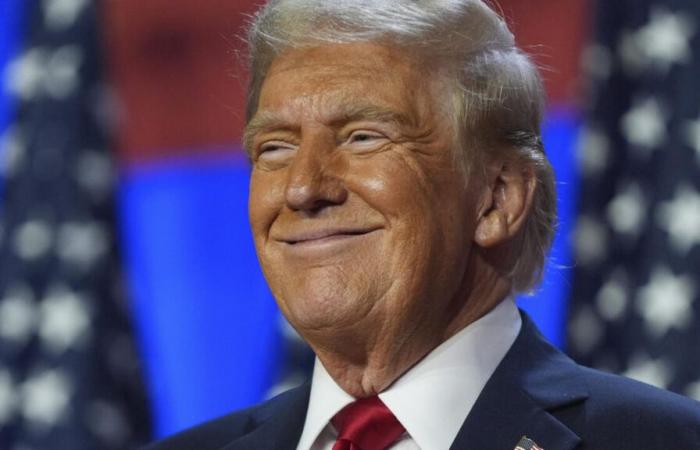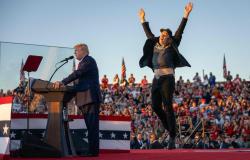The billionaire re-elected President of the United States on Tuesday November 5 made customs tariffs the heart of his economic policy. This time he threatens to increase them considerably, at the risk of triggering a large-scale trade war with unpredictable risks.
« Customs taxes are the greatest invention in the world », repeats Donald Trump. His first term was marked by new import taxes on steel, aluminum, solar panels and even washing machines. This time he wants to go even further with a new customs tax of 10% on all imported products. And he threatens to go much further. “ I see your factories leaving Chine or Mexico: don’t let them take your auto industry. They make these huge factories, and they think they’re going to be able to make tens of thousands of cars and sell them here? I won’t let them do it ”, he promised last September in Michigan. « We will increase customs taxes by 200%, their cars will become unsellable in the United StatesUnited States! »
Donald Trump addresses former workers steel belt » of the northern United States, which became the “ rust belt “. He gives his speech barely a hundred kilometers from Detroit, the fallen capital of the world automobile which has become the symbol of deindustrialization. Returning to the etymology of the word, the protectionism pour protect American industries and workers, Donald Trump hits the mark. In 2020 Joe Biden had won Michigan by more than 150,000 votes. This time it is Donald Trump that the voters of this swing-state have chosen. The billionaire does not see protectionism only as a shield, in his eyes it is also a weapon and a means of pressure. To fight against immigration or drug trafficking, for example, he threatens Mexico to impose new arbitrary customs taxes if Mexico does not control its borders better. Protectionism is also a weapon in the war for influence in which Washington and Beijing are engaged. During his first term Donald Trump increased taxes on certain Chinese products to 25%.
Trump threatens China but also US allies
He is now threatening to increase them to 60%. A figure which is not necessarily to be taken literally, Donald Trump boasts of sometimes throwing numbers at random as a negotiating tool, but the terms of the debate are set. Bad news for the Chinese economy which is still struggling to recover from the pandemic and the difficulties in its real estate market. Beijing is in a worse position against Trump than it was during his first term. The return of Donald Trump to the White House will not, however, constitute a break in commercial relations between the Chine and the United States. Joe Biden may have been very critical of the measures taken by Donald Trump, he did not return to the customs tariffs imposed by his predecessor on 300 billion dollars of imported products. He even added 18 billion targeted at sensitive technologies, particularly semiconductors.
The billionaire’s election, on the other hand, is viewed with great apprehension in European capitals. “ Our problem is other countries taking advantage of us », Trump repeated during the campaign. “ The worst thing is that those who treat us the worst are our so-called allies, I say so-called because in many ways they are not allies, they abuse us. » The message is clear, it is aimed at Europeans but also at Canada or Japan: there will be no free pass. Here again, we must wait to see beyond the chin-thumping whether these threats translate into concrete action, but it is hard to imagine, in the event of sharp increases in customs taxes in the United States, the countries concerned not responding by increasing in turn import taxes on American products. On a large scale, it’s called a trade war.
The example of washing machines
With what consequences for the global economy? It is too early to say, but the hypothesis is giving economists a cold sweat. In the shorter term, the return of protectionism risks resulting in widespread inflation. When the Trump administration raised import taxes on washing machines by about 10% early in its first term, the measure had some of the desired effect, with manufacturers investing in the United States, opened factories for a total of approximately 1,800 jobs created. But the price of washing machines has increased of almost 100 dollars for consumers. Worse, tumble dryers which were not affected by the new tax followed the same path. Researchers have done the math: each job created cost the consumer or taxpayer $815,000.






